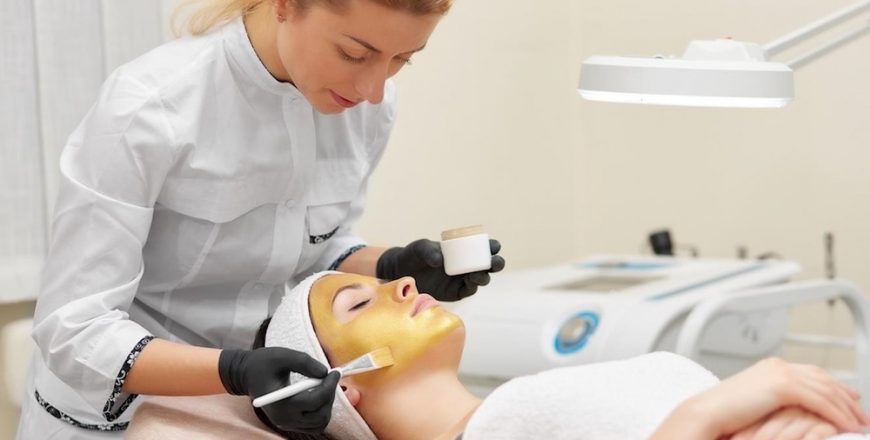
On an advanced beauty therapist apprenticeship course, you’ll help provide, design and implement bespoke treatment plans for clients.
An advanced beauty therapist may work in the beauty business, travel, leisure, and health industries, as well as a variety of salons, spas, and aesthetic settings.
You will propose, design, and carry out individualised treatment plans in this role. These treatments range from manual therapies such as advanced massage techniques to technology therapies such as face and body electrical treatments to meet and manage customer needs and expectations.
You will carry out organisational operations such as salon business systems and procedures, data protection, and legal and regulatory standards, contributing financially to the company’s success and maintaining and maximising resources such as personnel, equipment, and consumables.
Daily, you will interact with a large number of people, building strong relationships based on trust with customers, colleagues, and organisations. You may also be given supervisory responsibilities.
What you’ll learn
On an advanced beauty therapist apprenticeship course, you’ll learn to:
- Carry out advanced consultations for advanced manual and technology treatments to develop customised treatment plans that include treatment elements; an in-depth client lifestyle profile; body and skin analysis, including type, condition, and characteristics; posture assessment and identification of any postural faults, characteristics, body types, lifestyle and health recommendations suggestions for improving the customers’ physical look and mental condition a client’s risk assessment to determine eligibility and treatment indications, recognise any contraindications and take the appropriate measures. Information on anticipated and severe side effects, either before or after treatment; taking corrective action if the client suffers pain or harmful consequences.
- Evaluate therapy effectiveness by performing appropriate tests, such as allergy and sensitivity testing.
- Ensure that the client’s records are completed, signed, maintained, and kept in line with legal and organisational procedures (manually or electronically).
- Maintain safe and effective working methods in accordance with organisational operations to meet legal, local rules, industry requirements, treatment protocols, and manufacturers’ instructions and guidance by maintaining personal hygiene, protection, and presentation; maintaining client confidentiality and discretion before, during, and after treatments; positioning the client to meet the needs of the service; and ensuring own posture and working methods, ensuring that the setting is appropriate for both the client and the therapy; maintaining a clean and orderly work environment (things, tools, and equipment); using cross-infection prevention measures; encouraging ecologically friendly and sustainable working practices; and disposing of waste in accordance with regulatory requirements.
- Prepare the client for treatment while preserving the consumer’s confidentiality, modesty, and privacy. Maintaining client comfort and care necessitates assessing the client’s health before, during, and after therapy and providing enough post-treatment recovery time.
- Develop, execute, and complete risk assessment procedures for environmental, treatment, and client risk. As required, communicate with non-healthcare and healthcare practitioners.
- Implement, perform, and adapt advanced manual therapies, such as Swedish massage (face, scalp, and body), individually or as part of a course, to meet clients’ physical and psychological characteristics, treatment objectives (relaxing, wellbeing, uplifting, detoxifying, and stimulating), needs, and expectations. Deep tissue, light touch, lymphatic drainage, pressure point massage, advanced forearm, wrist, and elbow techniques and various massage materials.
- Implement, perform, and adapt advanced facial technical (electrical or mechanical) therapy treatments, either individually or as a course, to improve and maintain facial contour and muscle condition, increase lymphatic drainage, improve the face, neck, and shoulder skin condition, and meet the client’s needs and expectations.
- Choose and organise the goods, tools, and equipment required to accomplish the treatment goals and plan.
- Address any issues that may arise during therapy and refer as needed
- Ensure that the final product fulfils the agreed-upon treatment goals and the client’s expectations.
- Provide thorough, written post-treatment advice and recommendations, including post-treatment and follow-up procedures, aftercare products, avoidance of activities that may cause adverse reactions or reduce treatment benefits, time intervals between treatments, current and future products, and homecare routines/treatments.
- Encourage further treatments and sales to improve client satisfaction and overall treatment outcomes.
- Create and maintain salon procedures to safely control work operations, manage salon business systems and processes, including successful business planning, financial effectiveness, promotional and marketing activities, team development, salon operations and supporting client service improvements, and problem-solving practise. Use time management and self-management concepts to your advantage.
Entry requirements
You’ll usually need:
- Study or completion of a beauty therapy level 2 apprenticeship or equivalent to have the fundamental foundation of the job role.
- Apprentices without level 2 English and maths will need to achieve this before taking the end-point assessment.
Assessment methods
The End Point Assessment comprises three distinct assessment methods:
- Knowledge Test
- Observation & Technology Demonstration
- Professional Discussion
Duration, level, subjects and potential salary upon completion
- Duration: 18 months
-
Level: 3 – Advanced Apprenticeship
- Relevant school subjects: Business studies and art
- Potential salary upon completion: £22,000
Apprenticeship standard
More information about the Level 3 Advanced Beauty Therapist Apprenticeship standard can be found here.
Apprenticeship end point assessment
For more information about the End Point Assessment Process, please read the Institute of Apprenticeships’ information page.
